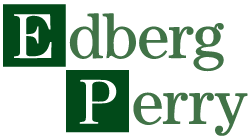Financial wellness – it’s essential to saving for retirement
Introducing a workplace retirement plan can be a compelling way for individuals to take control of their retirement savings, but for so many people that don’t have control of their personal situation, the retirement plan at work doesn’t have a chance to be successful without a helping hand and tools to achieve financial wellness.
We tend to talk about retirement plans in a vacuum – what it is and why it’s important, but there is a real need to connect it to people’s lives. Otherwise, when speaking with plan participants, they may nod at you as if they understand what you’re saying, but will have no idea how to implement the strategies. If they have credit card debt or don’t know where their money is going each month, they won’t be able to contribute to even the best-designed plan.
You know as a wealth management advisor just how important debt management, credit card responsibility, and emergency funds are to a stable financial future, and at the same time, you’re aware of how difficult it is for many people to establish a plan to make it happen.
There isn’t a silver bullet to financial wellness, but it’s important to recognize that part of good retirement plan design is ensuring that the people for whom it’s designed can take advantage of it. This is a chance to take what you know along with help from your recordkeeper partners to introduce programs holistically to help people achieve positive outcomes. And it’s more important than ever.
A common plea for those having trouble saving for retirement is to cut back on eating out or brew your coffee at home instead of splurging for the $5 latte. But it’s not that simple. A recent study showed that 6-in-10 can’t cover a $500 emergency expense without pulling out a credit card. If you’re having trouble finding the funds to fix your car, it’s impossible to contemplate putting an extra one percent of your salary into a 401(k).
So many individuals need your guidance and help because they don’t just need the opportunity to contribute to a 401(k), they need the capacity to take advantage of it. Once that happens, more individuals will be able to find a path to retirement.
While formalized financial wellness programs are becoming more prevalent, even if you don’t have access to them, you can still participate in the conversation. Providing links to online tools, apps, in-person seminars, and handouts can also be compelling with the right delivery.
Set expectations as to the many ways you can help improve the financial wellness of your clients and prospects. We are also here to help.
Talk to us about how we can create effective programs to talk with employers and communicate more effectively about what these mean and how to take advantage of them. It’s a way to clearly separate yourself from your competition while establishing a key mission – helping others achieve the retirement they deserve.



